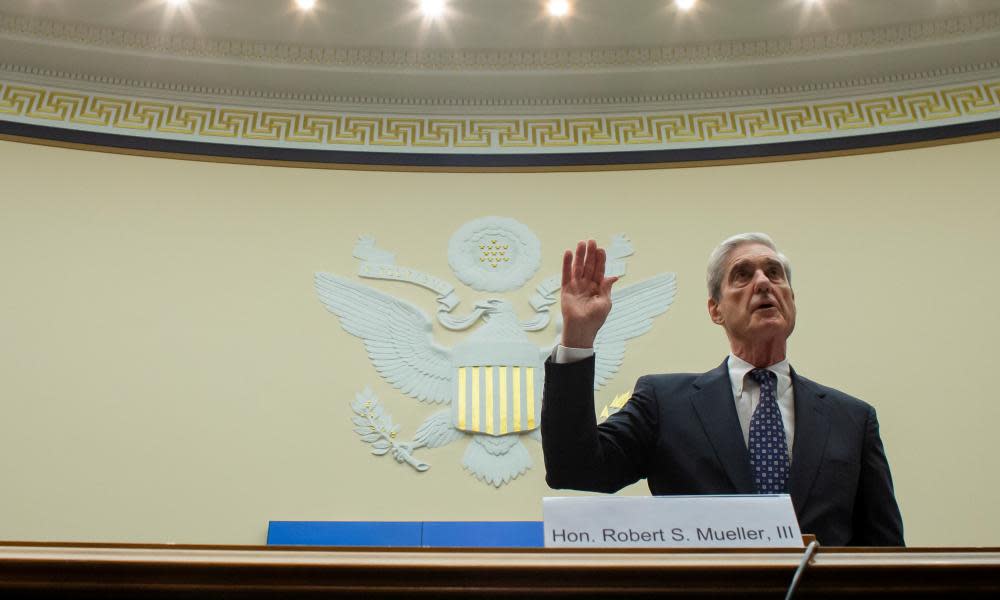Mueller report: justice department ordered to turn over unredacted copy

The Department of Justice has been ordered to turn over an unredacted copy of the Mueller report in a ruling that accuses the attorney general, William Barr, of misrepresenting the findings of the report before handing it over to Congress.
The department has been ordered to hand over the report by 30 March, so a judge can assess what can be further released publicly.
The court decision is the result of a BuzzFeed News lawsuit seeking to remove redactions from the report, which details the special counsel Robert Mueller’s investigation into Russian interference in the 2016 presidential elections.
In his opinion explaining the ruling, the federal judge Reggie Walton wrote that Barr’s public comments in April 2019 about the report did not fit with the actual findingsand were misleading to the public.
“The inconsistencies between attorney general Barr’s statements, made at a time when the public did not have access to the redacted version of the Mueller report to assess the veracity of his statements, and portions of the redacted version of the Mueller report that conflict with those statements cause the court to seriously question whether attorney general Barr made a calculated attempt to influence public discourse about the Mueller report in favor of President Trump despite certain findings in the redacted version of the Mueller report to the contrary,” Walton said.
Walton, who was appointed by George W Bush, delivered a harsh condemnation of Barr. “These circumstances generally, and attorney general Barr’s lack of candor specifically, call into question attorney general Barr’s credibility,” he wrote in the legal opinion.
Mueller wrapped his investigation into Russian interference in the 2016 election in April of last year. Following the conclusion of Mueller’s work, Barr released a four-page summary that largely cleared Trump of potential obstruction of justice, one of the key charges against him.
Mueller’s report did not find evidence that Trump’s campaign criminally conspired with Russia to influence the 2016 presidential election, but Mueller declined to come to a definite conclusion on the question of obstruction of justice. The redacted copy of the report that was eventually released described 11 instances in which Trump or his campaign engaged in potential obstruction of justice; Trump characterized the report as “total exoneration”, a line Democrats fiercely contested.
At the time, Mueller criticized Barr’s summary in a letter, writing that it “did not fully capture the context, nature, and substance” of the special counsel’s findings, according to reported excerpts.
“There is now public confusion about critical aspects of the results of our investigation,” Mueller added. “This threatens to undermine a central purpose for which the department appointed the special counsel: to assure full public confidence in the outcome of the investigations.”

